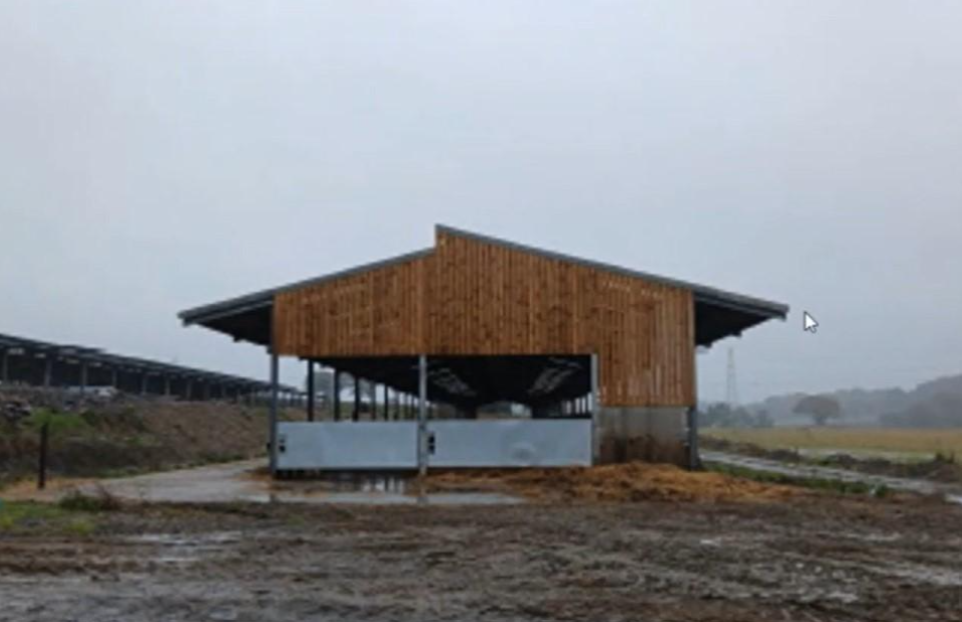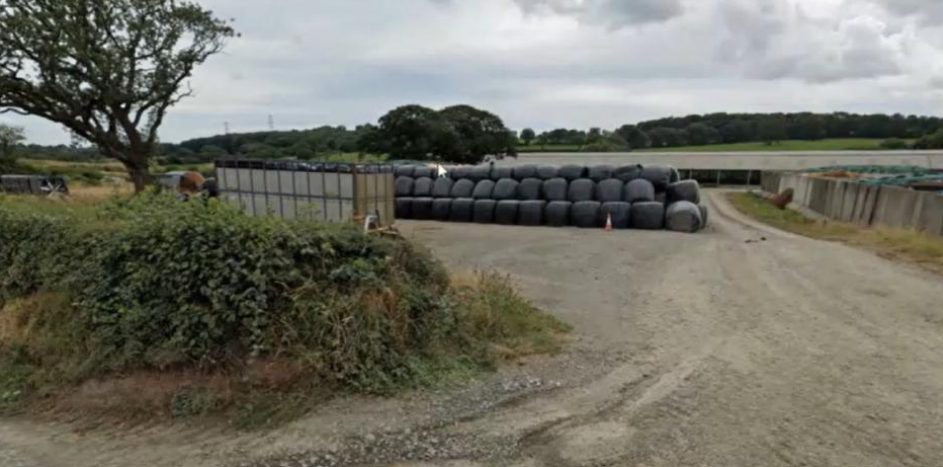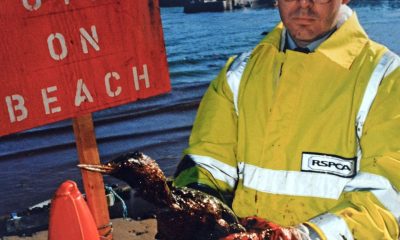Farming
NFU Cymru President, John Davies: ‘Much work ahead’

AS WE close the book on what has been an eventful year, I’d like to survey the events of 2019 and look ahead to see what is on the horizon in 2020.
We’ve just emerged from the third UK General Election in four years, following what has been a period of extraordinary political instability. The result of December’s election gives the Prime Minister the majority he has been seeking to take forward his Brexit plans. Although in legal terms we cease to be an EU Member State at the end of January, there is much work ahead to secure the access we need to our nearest and most valuable export market.
Although uncertainty persists, I am ambitious for our sector. Wales’ farmers have the skills, natural resource base and ambition from which to rise to future challenges and opportunities which lie ahead. These opportunities include increasing our self-sufficiency by producing more high-quality food, securing new export markers and becoming producers of the most climate-friendly food in the world by becoming zero net emitters of greenhouse gases by 2040.
Leaving the EU at the end of January based on the current withdrawal agreement means that we enter a transition period, during which time we continue to enjoy access to the EU’s single market. We must ensure that when that transition ends, we can access that market on the most favourable terms possible, with tariff and non-tariff barriers eliminated wherever possible. The UK’s government must also avoid a situation whereby the transition period elapses without having reached an agreement on a future trading relationship with the EU, culminating in us trading with the EU on WTO terms.
Trade talks with third countries will begin soon and one point I have been making consistently, and for some time now, is that we must not allow our own high environmental and animal welfare standards to be undermined in any future trade agreements that the UK may enter into. I, therefore, want 2020 to be the year in which the new government moves ahead with the creating of a Trade and Standards Commission, which will be tasked with ensuring our high standards are upheld and respected in any future trade agreements with third countries.
2019 also saw the second stage of the Welsh Government’s consultation on the future of agricultural policy in Wales. The ‘Sustainable Farming and our Land’ consultation followed its 2018 predecessor, ‘Brexit and our Land’, and we were pleased to see these revised proposals including future support around the principle of sustainability. The union remains concerned, however, that the proposals suggest the continued supply of vital economic, social and cultural benefits provided by Welsh farming currently can be secured through what is, essentially, an agri-environment scheme. I’d like to once again thank all farmers and those living in our rural communities who responded to the consultation. We now wait for the Welsh Government to analyse the responses and bring forward the next stage of the process in 2020.
Sadly, as we welcome in the New Year, around 650 cattle farmers in Wales are affected by bovine TB restrictions and this, of course, has a significant knock-on effect on their business and family. NFU Cymru continues to lobby the Welsh Government to review its bovine TB eradication strategy and deliver a more holistic policy that tackles this disease across all its vectors. A peer-reviewed scientific report examining the effectiveness of badger culling in reducing outbreaks of TB in cattle has shown positive results in Gloucestershire and Somerset and we now look to Welsh Government to listen to the science and use all of the tools at its disposal to control the reservoir of disease in wildlife – not just through cattle controls. We also need the Welsh Government to look at the support for chronic herds in Wales and the massive impact long term breakdowns are having on these businesses.
On the dairy side, we look forward to a long-awaited consultation on statutory milk contracts. There are examples of good practice out there but what other industry would allow six weeks of payments in arrears and for processors to adjust prices at a whim? Of course, we want processors to have successful profitable businesses, but we need the same for our milk producers. After all, these are the people taking the price risk when product prices fall. This has to change as evidenced by the latest Welsh Government farm statistics when dairy farm income fell by a massive 43% in the year ending March 2019 compared to the previous 12 months. Statutory contracts will help bring back some stability which the sector needs right now.
Against the backdrop of Brexit uncertainty and low market returns, the threat of regulation continues to weigh heavily on farmers’ minds. Back in November 2018, the Welsh Government announced regulatory measures covering the whole of Wales to protect water quality from agricultural pollution coming into force in January 2020. From information provided by the Welsh Government in early 2019, it is clear the proposed new regulations are whole territory Nitrate Vulnerable Zones (NVZ) with the NVZ Action Programme requirements applied across the whole of Wales.
The Minister, in December 2019, confirmed that she will be considering advice from officials in January on the introduction of agricultural regulations following further engagement. NFU Cymru categorically rejects any proposals which include the introduction of the Nitrates Directive and Nitrate Vulnerable Zones (NVZ) across the whole of Wales. This is based on the evidence which shows an all-Wales approach simply cannot be justified; that the existing NVZs in Wales have had limited effectiveness. The great harm an all-Wales NVZ will do to farm businesses and our rural communities, which greatly outweigh any benefits to water quality, cannot be justified. We are clear, an all-Wales NVZ approach is not evidence-based, proportionate or targeted and we continue to work tirelessly to emphasise to Welsh Government the devastating impacts that an all-Wales NVZ approach will have. We urge the Minister to recognise that poor regulation serves no one – not government, not society, not the farming industry or the environment – and work with us to develop the framework to support farmers to take action to improve water quality where this is needed.
2019 has also been a year when the glare of the media on Welsh and British farming has not been as balanced as we would expect. I have long said that, as an industry, we are not immune from critique and we relish the opportunity to stand up and promote our values and leading standards. What we do not and will not accept, however, is unbalanced reporting and false news pedalled by those with an agenda against farming. This year NFU Cymru has shown we tackle such behaviour through robust complaints and other means. Please be assured that we are prepared to escalate our actions accordingly if required.
There will no doubt be huge challenges facing our industry in 2020 and beyond. As an industry, we should all be very proud of the role we play and we must remain steadfast in our ambitions to continue to deliver for the people and communities of Wales. As an organisation, NFU Cymru is ambitious for Welsh food and farming. Politicians in both Cardiff and Westminster must commit to working with us to deliver our ambition for a productive, progressive and profitable farming sector that delivers for the whole of Wales
Business
Langdon Mill Farm Pembrokeshire expansion signed off

THE FINAL sign-off for plans for a heifer accommodation building and associated works at one of Pembrokeshire’s largest dairy farms, with a milking herd of 2,000 cows, have been given the go-ahead.
In an application backed by councillors at the December meeting of Pembrokeshire County Council’s planning committee, Hugh James of Langdon Mill Farms Ltd sought permission for a 160-metre-long heifer accommodation building, a slurry separation/dewatering building and associated yard areas at 1,215-hectare Langdon Mill Farm, near Jeffreyston, Kilgetty.
A supporting statement through agent Reading Agricultural Consultants said: “The holding currently has a milking herd of approximately 2,000 cows, which are housed indoors for the majority of the year, with dry cows and heifers grazed outdoors when weather and soil conditions permit.

“There has been significant investment in buildings and infrastructure at the farm over the last decade in respect of cattle accommodation, slurry storage, milking facilities, Anaerobic Digestion (AD) plant, feed storage. Recently a calf and weaned calf accommodation buildings were approved by Pembrokeshire County Council with construction almost complete.
“The unit is efficient, achieving yields of more than 10,000 litres/cow/year, with cows being milked three times/day in the 60-point rotary parlour. Langdon Mill Farm currently directly employs 21 full-time, and three part-time staff. Of these, four live on site in the two dwellings opposite the farm, with the remaining staff living in the locality.”
It added: “Although the unit has previously purchased heifers to aid expansion, the farm now breeds most of its own replacements to improve genetics and to minimise the ongoing threat of bovine tuberculosis (bTB).”
It said the proposed building would be used by heifers between the ages of 7-22 months, the siting “directly influenced by the adjacent calf and weaned calf buildings, with livestock being moved from one building to the next as they get older”.
Members unanimously supported the recommendation of approval, giving delegated powers to the interim head of planning to approve the application following the final approval of a habitats regulations assessment.
An officer report published yesterday, February 5, said Natural Resources Wales confirmed it had received the assessment, and, “in consideration of the mitigation measures detailed and on the understanding there is no increase in stock, they agree with the LPA’s conclusion that an adverse effect upon the integrity of the SAC [Special Areas of Conservation] sites can be ruled out”.
Formal delegated approval has now been granted by officers.
Farming
Forgotten meats tipped as future ‘superfood’ comeback

SO-CALLED “forgotten meats” such as liver, heart and kidneys could soon find their way back onto dinner plates, with scientists suggesting they may offer a cheap, sustainable and highly nutritious alternative to modern ultra-processed foods.
Offal was once a staple of everyday diets across the UK, particularly in working-class households, but has steadily fallen out of favour in recent decades despite being rich in iron, protein and essential vitamins.
Now researchers at Aberystwyth University are working with Hybu Cig Cymru (HCC) to understand why demand has dropped and whether these cuts could be repositioned as affordable “superfoods”.
Scientists say that when nutrient-dense parts of the animal go uneaten, valuable food is effectively wasted.
Dr Siân Mackintosh, from the university’s Institute of Biological, Environmental and Rural Sciences (IBERS), said these meats could play an important role in healthier and more sustainable diets.
“Where they are not being used, these nutrient-dense ‘forgotten meats’ represent a significant loss of nutrients from our food chain,” she said. “Incorporating them as part of a balanced diet could support human health while also reducing food waste and improving environmental outcomes.”
Taste tests win over public
To test public attitudes, HCC staff have been running tasting sessions at major agricultural events including the Royal Welsh Show and the Winter Fair in Llanelwedd.
Visitors sampled dishes made with Welsh lamb’s liver, including stroganoff, traditional faggots and pâté. Organisers say many people were surprised by the flavour and keen to learn how to cook them at home.
Dr Eleri Thomas, Future Policy and Project Development Executive at HCC, said interest was stronger than expected.
“We believe there is significant potential for these forgotten meats to be incorporated back into our diets,” she said. “Consumers liked the flavour and wanted recipes and cooking tips, as well as understanding the nutritional value.”
She added that making better use of undervalued cuts could improve sustainability across the meat supply chain while creating new marketing opportunities for Welsh producers.
Part of wider sustainability project
The work forms part of the SMART Nutrient Cymru project, funded through the Welsh Government’s innovation support scheme.
Project lead Dr Christina Marley said the aim is to capture nutrients currently being lost across the agri-food system.
Alongside the collaboration with HCC, the team has also partnered with Dŵr Cymru Welsh Water on land management to protect rivers, and with British Wool to explore new uses for fleece by-products.
IBERS itself is one of eight UK research institutes strategically supported by Biotechnology and Biological Sciences Research Council, providing national expertise in grassland and plant breeding science.
Researchers say that with food prices rising and pressure growing to reduce waste, traditional nose-to-tail eating could offer both economic and environmental benefits.
Image: Welsh lamb faggots (Pic: HCC)
Community
Celebrating nature recovery through Cysylltu Natur 25×25

A CELEBRATION event was held on Saturday, January 24 in Cwm Gwaun to mark the achievements of Pembrokeshire Coast National Park Authority’s Cysylltu Natur 25×25 project, bringing together volunteers, farmers and staff involved in delivering nature restoration across North Pembrokeshire.
The landscape-scale project was funded by the Welsh Government through the Nature Networks Programme, delivered by the Heritage Fund. The Programme aims to strengthen ecological connectivity and resilience by restoring habitats at scale.
Those attending the event heard about the wide range of conservation activity delivered through the project across the north of the National Park. This has included practical works to restore grazing to Rhos pasture to benefit marsh fritillary butterflies and southern damselflies, specialist work to conserve rare lichens, volunteer chough, dormouse and harvest mouse monitoring, safeguarding greater horseshoe bat hibernation sites, and targeted action to tackle invasive species threatening important sites.
Volunteers, farmers, land managers and contractors played a vital role in the success of the project, contributing local knowledge, practical skills and ongoing commitment to caring for Pembrokeshire’s unique landscapes and wildlife in the long term.
Mary Chadwick, Conservation Officer for Pembrokeshire Coast National Park Authority, said: “Cysylltu Natur 25×25 has shown what can be achieved when farmers, volunteers and conservation specialists work together with a shared aim.
“From monitoring some of our most elusive species to restoring and protecting habitats, the dedication of everyone involved has made a real difference for nature across the National Park.”
Although the Cysylltu Natur 25×25 project is now coming to an end, the important work it has supported will continue. Building on its successes, Pembrokeshire Coast National Park Authority will carry this momentum forward through the next phase of nature recovery work under NNF4 Cysylltiadau Naturiol / Naturally Connected, ensuring ongoing protection and enhancement of habitats for future generations.
-

 Health5 days ago
Health5 days agoHealth board targets rise in steroid and gym drug use across west Wales
-

 Crime5 days ago
Crime5 days agoSex offender jailed after living off grid in Pembrokeshire and refusing to register
-

 News7 days ago
News7 days agoPrincess of Wales visits historic Pembrokeshire woollen mill
-

 Crime5 days ago
Crime5 days agoTeacher injured and teenager arrested for attempted murder at Milford Haven School
-

 Crime7 days ago
Crime7 days agoHakin man’s appeal delayed again as Crown Court seeks guidance on insurance law
-

 Crime6 days ago
Crime6 days agoJohnston man remanded in custody over knife and assault charges
-

 Business4 days ago
Business4 days agoSix-figure negligence victory leaves retired builder trapped in divorce limbo
-

 Business16 hours ago
Business16 hours agoComputer Solutions Wales under fire from customers




























